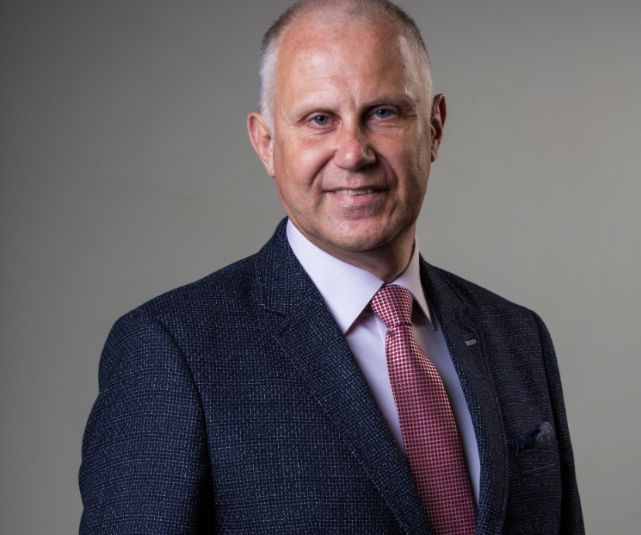So who are the forces of light and who are the forces of darkness?

29 customs officers from Terehova customs point were detained in Latvia. The widest detention in the history of Latvian customs. A giant scandal with far-reaching political consequences. Media headlines - "The smuggling network tentacles stretch to high offices in Riga", "The Minister of Finance has resigned after the searches carried out by the KNAB". Unfortunately, not even close. Complete silence. As if such detentions were an everyday event, which is not worth more attention to than a traffic accident on Turgeņeva Street.
To answer the question of why this extraordinary event is hardly paid any attention to, one must first understand the mechanism of formation of the public interest. If a political event does not clearly fit into the mythological narrative (story) prevailing in the society, then it may seem important to a narrow circle of people involved in the case, but it is not very interesting for the general public. As on such occasions, pretending to be a naive country uncle, the well-known public figure and old jokester Dzintris Kolāts asks in an exaggerated ignorance: "So, who in this case are the forces of light and who are the forces of darkness?"
If there are no clear, unambiguous answers to this hypothetical question of Kolāts, then this event is not very likely to earn wider public interest. However, if we want to answer this question without irony, then it turns out that it cannot be done so easily. Even the leading “commentators” of Latvian political mythology will not be able to clearly state which are the forces of “light” and which are the forces of "darkness" in the fight of the heads of the State Revenue Service (SRS) and Ieva Jaunzeme and Jānis Reirs of the Ministry of Finance (MoF). And after all, what does it matter? If there is no way to drag either Šlesers or Šķēle into it, then what is the point? Who is interested in this internal conflict of the ruling "church"? Only those who feasted on this honey pot (customs post) for years, or on the contrary, drooled over it but could not get close enough. All others are deeply indifferent to it all. Although it should not be so.
Despite years of joking about the fancy mansions of customs officers on the Russian border, Riga society has always looked at possible customs violations with astonishing tolerance. I am, of course, fibbing a little by saying "always", because in 2007 the culprit was found - the then head of the Customs Criminal Board Vladimirs Vaškevičs, and soon all the structural units of the MoF, including the SRS and the Customs Board, was thoroughly scrubbed of any "black sheeps". Since March 12, 2009, when the former Minister of Finance Atis Slakteris was replaced by Einars Repše, this ministry (with a break in 2016-2019, when it was headed by Dana Reizniece-Ozola) has been under the supervision of Unity (Vienotība).
It is clear that the bosses in Ludza and Riga could not have been unaware of the situation in Terehova. The procedure that led to the detention of 29 customs officers in 2021 did not take place in one day. Already in 2014, Raitis Kononovs, called the king of smuggling, talked about what was happening at the Terehova border crossing in a wide-ranging interview in the newspaper Ludzas Zeme. Kononovs was unusually talkative and open in the interview. He did not talk about some unnamed "forces", "known persons" as usual, but shamelessly called specific surnames, the loudest of which were the then head of the Security Police Jānis Reiniks and the head of the Customs Criminal Board Edijs Ceipe.
Needless to say, there was no follow-up to Kononovs' interview, as no public authority even intended to formally verify the facts. This is also easy to explain. Kononovs clearly accused Unity of covering up smuggling. I would like to remind you that this was at a time when Unity was in power in Latvia for the fifth year in a row, and according to the already mentioned ideological vision, Unity could not be connected with smuggling in the slightest sense. Just not at all. As in Soviet-era films, any leader could be bad, except for the party secretary. He must be a moral model. It is the same way now. Anyone can be bad, except for Unity people. If one wants to mention Dzintars Zaķis, then it must be said that he had lost the "forces of light" armband on his coat long before the fall, so his example should be seen as an exception that proves the rule.
What do I mean by all this?
The prolonged exclusion of a particular class of the population (whether aristocracy, clergy or party secretaries) from public control always ends badly. The pretense of Unity and its derivatives as the forces of “light” and the tacit support of a large part of society for this mythological narrative is devastating for Latvia.
As long as Latvia's political life will be perceived as a fight in an arena where spectators cheer about their team no matter what they do on the field, nothing will change for the better. Just like everyday life is not in any way changed by the achievements of our basketball players or hockey players. But politicians are not chasing after some rubber puck on ice. At least that should be the case.
*****
Be the first to read interesting news from Latvia and the world by joining our Telegram and Signal channels.